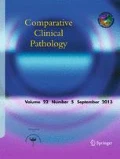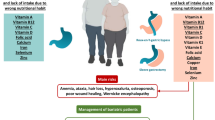Abstract
This study evaluated the effect of glutamine and glutamate supplementation on hematological and biochemical biomarkers in dogs with clinical enteritis. Fifteen young dogs (3–10 months) with clinical enteritis were divided into two groups: group 1 (G-CON)—five animals subjected to medical treatment without supplementation and group 2 (G-GLN)—ten animals subjected to medical treatment and orally supplemented with 0.5 g/Kg per day of a glutamine and glutamate for 14 days. The following variables were measured: blood count, plasma glutamine and glutamate, total plasma protein (TPP), albumin, globulin, urea, creatinine, aspartate aminotransferase (AST), alanine aminotransferase (ALT), cholesterol, and triglycerides. Supplementation increased the concentrations of GLN, PPT, globulin, albumin, urea, and triglycerides (P < 0.05). Erythrocyte count, hemoglobin concentration, hematocrit, red blood indices, and platelet count were not affected by supplementation. There were significant elevations in total white blood cells, neutrophils, and lymphocytes (P < 0.05) after supplementation, but other variables were not significantly different. A mixture of Gln + Glu along with drug treatment was therefore capable of producing elevations in immune cells (leukocytes and lymphocytes) and biomarkers associated with improved protein metabolism and health that favor recovery of the animals without causing damage to renal and hepatic systems.
Similar content being viewed by others
References
Almeida, TLAC (2012). Glutamine metabolism in health and sick dogs. Master dissertation at the Graduate Programa in Veterinary Medicine, Department of Veterinary Medicine, Federal Rural University of Pernambuco.
Costa PRS, Conceição LG, Lopes MAF (2009) Nutrição enteral precoce com glutamina em cães com gastroenterite hemorrágica pelo parvovírus canino. Arquivo Brasileiro de Medicina Veterinária e Zootecnia 61(5):1251–1253
Dell’Orto V, Di Giancamillo A, Savoini G (2002) Influence of nucleotides and glutamine dietary supplementation on gut health of weaning piglets. J Anim Sci 80:220
Hackett TB (2011) Gastrointestinal complications of critical illness in small animals. Vet Clin N Am Small Anim Pract 41:759–766
Humbert B, Nguyen P, Dumon H, Deschamps J, Darmaun D (2002) Does enteral glutamine modulate whole-body leucine kinetics in hypercatabolic dogs in a fed state? Metabolism Clinical and Experimental 51:628–635
Kaneko JJ (2008) Clinical biochemistry of domestic animals. 6th Edn. Academic Press, San Diego, USA
Lobley GE, Hoskin SO, Mcneil CJ (2001) Glutamine in animal science and production. J Nutr 131:2552–2531
Manso Filho HC, Mckeever KH, Gordon ME, Costa HEC, Lagakos WS, Watford M (2008) Changes in glutamine metabolism indicate a mild catabolic state in the transition mare. J Anim Sci 86:3424–3431
Newsholme P (2001) Why is L-glutamine metabolism important to cells of the immune system in health, post-injury, surgery or infection? J Nutr 131: 2515S–2522S
Rodrigues NCL, Nunes LA, Horie LM, Torrinhas R, Waitzberg DL (2007) Efeito da suplementação de glutamina sobre variáveis hematológicas e do estado nutricional de ratas desnutridas. Arquivo Brasileiro de Cirurgia Digestiva 20:270–273
Reeds PJ, Jahoor F (2001) The amino acids requirements of disease. ClinicalNutrition 20:15–22
Sasaki J, Goryo M, Asahina M, Makara M, Shishido S, Okada K (1999) Hemorrhagic enteritis associated with Clostridium perfringens type A in a dog. J Vet Med Sci 61:175–177
Schwimmer JB, Looi EE, Zheng S, Tso P (2002) Glutamine promotes triglyceride absorption in a dose-dependent manner. Am J Physiol 282:317–323
Souba WW (1993) Glutamine and cancer. Ann Surg 218:715–728
Souba WW, Herskowitz K, Austgenn TR, Chen MK, Salloum RM (1990) Glutamine nutrition: theoretical considerations and therapeutic impact. J Parenter Enter Nutr 14:37–42
Tessari P, Garibotto G (2000) Interorgan amino acid exchange. Current Opinion in Clinical Nutrition and Metabolic Care 3:51–57
Vaz SG, Mesquita RM, Almeida TLAC, Teixeira MN, Manso HECCC, Manso Filho HC (2015) Elevation of glutamine concentration after blood donation in dogs. Comp Clin Pathol 24(2):329–334
Weiss DJ, Wardrop KJ (2005) Schalm’s Veterinary Hematology. 6th Edn. Wiley-Blackwell, Iowa, USA
Wernerman J (2008) Clinical use of glutamine supplementation. J Nutr 138:2040S–2044S
Wilmore DW (1997) Metabolic support of the gastrointestinal tract: potential gut protection during intensive cytotoxic therapy. Cancer 79(9):1794–1803
Yoo SS, Field CJ, Mcburney MI (1997) Glutamine supplementation maintains intramuscular glutamine concentrations and normalizes lymphocyte function in infected early weaned pigs. J Nutr 127:2253–2259
Acknowledgements
This study was funded by the National Scientific and Technological Development (CNPq) and wanted to thank Ajinomoto of Brazil (Sao Paulo-SP, Brazil) for AminoGut donation and also to Professor Dr. Malcolm Watford, Rutgers University, for his review and comments on this paper.
Author information
Authors and Affiliations
Corresponding author
Ethics declarations
The Committee on Ethics and Animal Welfare of UFRPE-CEUA authorized this research by protocol #23082.006184/2010.
Conflict of interest
The authors declare that they have no conflict of interest.
Rights and permissions
About this article
Cite this article
Rodrigues, A., Silva, G., Almeida, T. et al. Effects of glutamine and glutamate supplementation in dogs with hemorrhagic enteritis. Comp Clin Pathol 26, 315–320 (2017). https://doi.org/10.1007/s00580-016-2392-0
Received:
Accepted:
Published:
Issue Date:
DOI: https://doi.org/10.1007/s00580-016-2392-0



